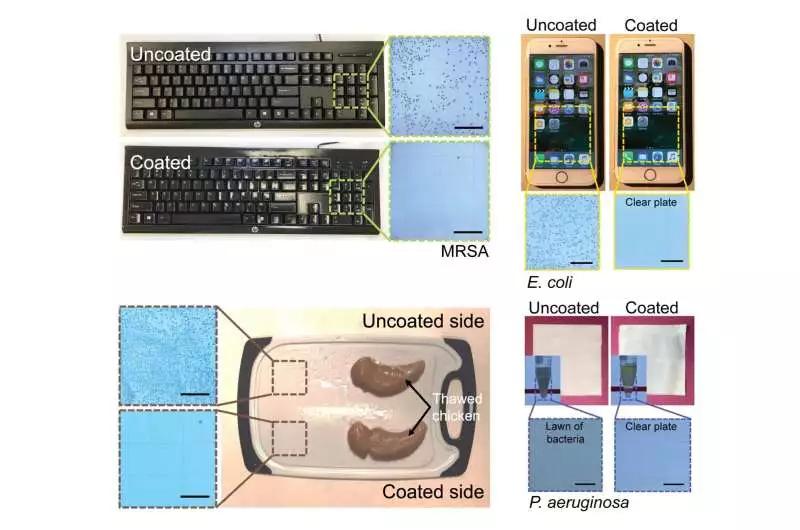Although there are coatings that kill harmful microbes on frequently touched surfaces, most of those substances either have to be frequently reapplied, or they take a long time to work. A durable new coating, however, is claimed to address both shortcomings.
Developed at the University of Michigan, the material consists of commonly used polyurethane plastic combined with tea tree oil and cinnamon oil. All of the ingredients are already known to be safe for humans.
While still in liquid form, the substance is either brushed or sprayed onto items such as door knobs or touchscreens. Once it dries, it forms a tough, transparent coating which is claimed to be highly effective at killing bacteria and viruses.
Some of the tea tree and cinnamon molecules are cross-linked to the polyurethane molecules – keeping them permanently in place within the plastic matrix – while others are free to move between that matrix and the surface of the coating. That said, the free molecules generally tend to stay with those that are cross-linked, reducing the rate at which the oils evaporate. When microbes come into contact with the coating, however, the free molecules kill them by penetrating their protective outer membranes – and they do so within about two minutes.
In tests performed on surfaces such as keyboards, smartphone screens and cutting boards used to cut chicken, the coating remained effective for at least six months, killing 99.9 percent of pathogens including E. coli, MRSA and the Covid-19-causing SARS-CoV-2 virus. It did so even though those surfaces were repeatedly cleaned and abraded.
As an added bonus, once the effectiveness decreases as the oils begin to evaporate, the coating can be "recharged" simply by wiping it with fresh tea tree and cinnamon oils – these are absorbed by the polyurethane matrix.

"Disinfectant cleaners can kill germs in only a minute or two but they dissipate quickly and leave surfaces vulnerable to reinfection," said Prof. Anish Tuteja, co-corresponding author of a paper on the research. "We do have long-lasting antibacterial surfaces based on metals like copper and zinc, but they take hours to kill bacteria. This coating offers the best of both worlds."
Spinoff company Hygratek is now commercializing the technology. The paper was recently published in the journal Matter.
Source: University of Michigan via EurekAlert




